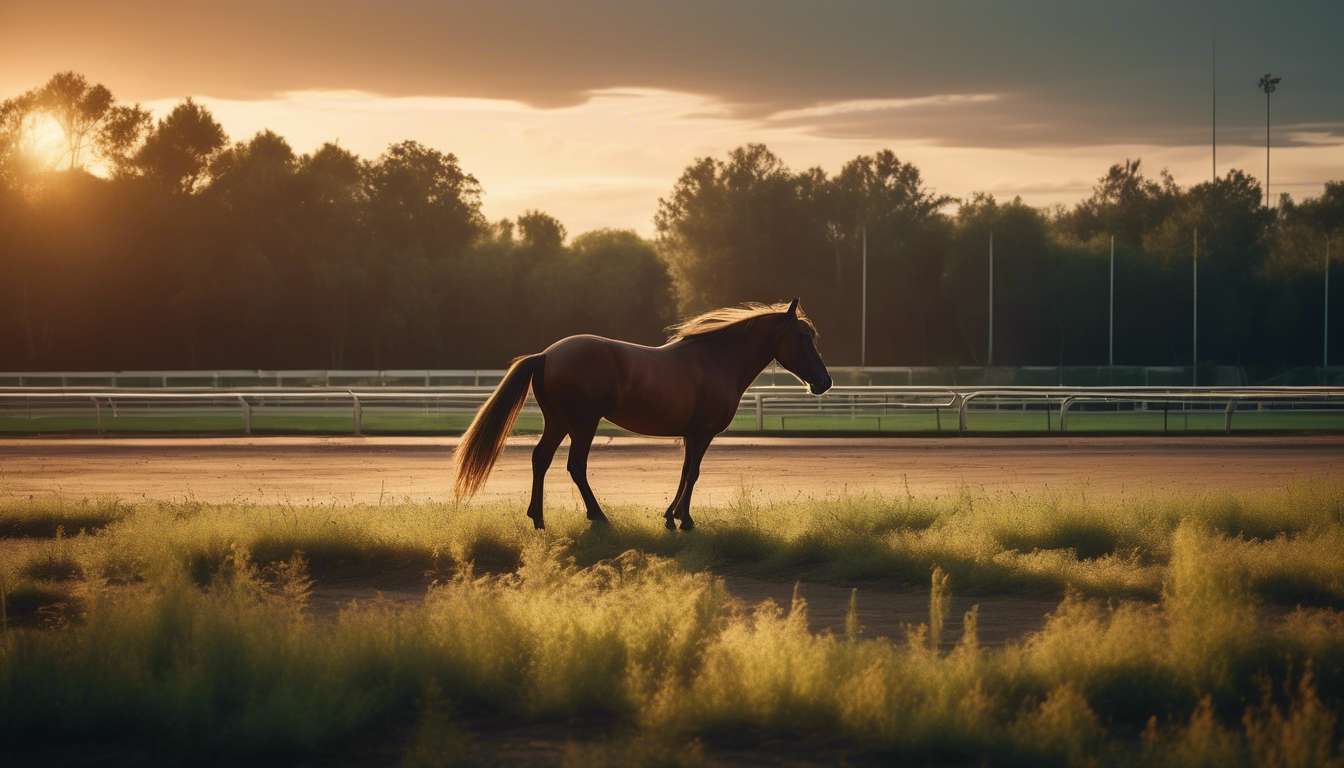As passionate enthusiasts of horse racing, we find ourselves at a pivotal moment in the sport’s storied history. Horse racing, once hailed as the "Sport of Kings," is now facing challenges that prompt us to question its very survival.
Current Challenges:
- Decline in attendance at racetracks
- Decrease in wagering
- Increased scrutiny from animal rights activists
These issues compel us to examine whether our beloved sport is on the brink of fading into obscurity or if it can adapt and thrive in modern times.
We acknowledge:
- Concerns surrounding animal welfare
- Competition from other forms of entertainment that vie for the public’s attention
Yet, we also see the potential for innovation and revitalization.
As we delve into this topic, we aim to explore the reasons behind these challenges and discuss the efforts being made to ensure horse racing remains a vibrant part of our cultural heritage.
Historical Significance of Horse Racing
Horse racing has played an integral role in numerous cultures throughout history, shaping traditions and social dynamics. We’ve stood together as communities, united by the thrill of the race, sharing in the excitement and camaraderie that only such events can inspire.
Attendance at these races wasn’t just about watching horses thunder down the track; it was a celebration of our shared heritage and a chance to connect.
Reflecting on the historical significance of horse racing, we recognize our responsibility to uphold animal welfare.
In the past, the focus might’ve been solely on the competition, but now we understand the importance of ensuring the well-being of the horses who make these events possible. We’ve come to appreciate the delicate balance between honoring longstanding traditions and adapting to modern values.
By prioritizing animal welfare, we create a more inclusive and compassionate environment, ensuring that horse racing remains a cherished part of our cultural fabric for generations to come.
Economic Impact of Declining Attendance
As race day crowds dwindle, significant economic repercussions ripple through the industry. Horse racing relies heavily on attendance to sustain itself, and fewer fans in the stands results in decreased revenue from ticket sales, concessions, and merchandise.
This downturn affects everyone involved:
- Track staff
- Local businesses that thrive on race day traffic
We’re all part of a community that cherishes this sport, and the decline in attendance signals a challenging time for us.
Moreover, declining attendance raises concerns about the funds available for essential aspects of horse racing, including animal welfare. Proper care for the horses is paramount, and fewer resources make it difficult to maintain high standards. We must consider how to support the industry and ensure it aligns with our values, including the ethical treatment of animals.
Together, we can explore solutions to:
- Reinvigorate interest and attendance in horse racing
- Preserve its legacy
- Adapt to changing times
Wagering Trends in Horse Racing
In recent years, we’ve observed a notable shift in wagering trends, with more bettors opting for online platforms over traditional on-track betting. This evolution in horse racing creates a sense of connection and community among bettors who prefer the convenience of digital platforms.
Despite declining attendance at racetracks, online wagering has flourished, allowing fans to engage with the sport from anywhere. It’s clear that technology has reshaped our interaction with horse racing, opening new avenues for participation.
While the excitement of being physically present at a race remains unmatched, online platforms offer a sense of belonging to a global community. We can share insights and predictions, enhancing the collective experience.
However, this shift also raises questions about the future of race day attendance and its impact on the atmosphere that makes horse racing unique.
As we continue embracing digital trends, it’s crucial to consider how they align with our shared values, including:
- Animal welfare
- The overall integrity of the sport
Conclusion: Balancing these elements will be key as we navigate the changing landscape of horse racing.
Animal Welfare Concerns in Racing
In recent years, we’ve seen growing scrutiny over how racehorses are treated, prompting an urgent need to address animal welfare concerns in the industry. As a community passionate about horse racing, we understand the importance of caring for these majestic animals that are at the heart of the sport.
Concerns about training practices, race conditions, and post-racing care have led many fans and activists to question the integrity of our beloved pastime. Attendance at horse racing events has been impacted by these concerns, as more people demand transparency and accountability in how horses are treated.
To ensure the sport thrives, we must prioritize animal welfare by implementing stricter regulations and promoting best practices in horse care. By doing so, we not only protect the well-being of the horses but also strengthen the trust and connection within our community.
Together, we can create a future where horse racing is synonymous with respect and compassion for all involved.
Technological Advancements in the Sport
In recent years, we’ve witnessed remarkable technological advancements transforming the landscape of horse racing. These innovations, from high-tech timing systems to sophisticated data analytics, have not only enhanced the experience for fans but also ensured a more transparent and enjoyable sport for everyone involved.
By incorporating real-time data, we’re seeing a notable increase in attendance as fans feel more connected and engaged with the races.
Moreover, technology is playing a crucial role in improving animal welfare. Advanced monitoring systems allow us to track the health and performance of horses more precisely, ensuring their well-being is prioritized.
With these tools, we can:
- Detect any issues early on
- Take preventive measures
This fosters a safer environment for these magnificent creatures.
As a community, we embrace these changes, understanding that they bring us closer together while preserving the integrity of horse racing. Our shared passion for the sport is strengthened as we adapt and evolve with these technological advancements.
Strategies to Attract Younger Audience
To captivate a younger audience, we must leverage digital platforms and social media to create engaging and interactive content that resonates with their interests and lifestyle. By utilizing:
- Vibrant videos
- Behind-the-scenes stories
- Live-streaming events
we can bring the excitement of horse racing directly to their screens.
Collaborating with influencers who share our passion for the sport can amplify our message and foster a sense of community.
We should highlight animal welfare initiatives, showing our commitment to the horses’ well-being. This transparency will build trust and assure younger audiences that the sport values and protects its most cherished participants.
To increase attendance, we can organize themed events that appeal to diverse tastes, merging music, food, and fashion with the thrill of the races.
Engaging younger generations means embracing their values and offering them a sense of belonging within the horse racing community.
Through these strategies, we can ensure that horse racing remains vibrant and relevant for future generations.
International Influence on Racing Industry
The global landscape of horse racing enriches the sport with diverse cultural influences and innovative practices.
As we embrace international events, we witness how traditions from different countries enhance our shared heritage. These global connections not only bring fresh excitement but also boost attendance at races around the world. By learning from each other, we create a community that values the rich history and dynamic future of horse racing.
Incorporating international perspectives also means prioritizing animal welfare. We see how other nations address these concerns and adopt best practices to ensure the well-being of our equine athletes. This collective effort helps us improve the standards of care and fosters a sense of responsibility across borders.
With these shared values, we strengthen the bond between fans, trainers, and horses, securing our place in the global racing community.
Together, we find that embracing international influence not only revitalizes our beloved sport but also reinforces our commitment to its ethical evolution.
The Future of Horse Racing
Embracing Innovation and Sustainability
As we look ahead, we must embrace innovation and sustainability to ensure horse racing thrives in the modern era. Our collective passion for this timeless sport can drive us to adapt and evolve.
Enhancing Animal Welfare
By enhancing animal welfare and prioritizing the health of our equine athletes, we’ll foster a more compassionate sport that resonates with new generations. As fans who cherish horse racing, it’s our responsibility to advocate for these changes.
Increasing Attendance Through Engagement
Increasing attendance at racing events requires us to create more inclusive and engaging experiences. By incorporating technology, we can attract a tech-savvy audience while maintaining the sport’s rich traditions. This can include:
- Virtual reality experiences
- Mobile apps
Rethinking Relevance in Society
We’ll need to rethink how horse racing fits within our changing society, ensuring it remains relevant and exciting.
Building a Brighter Future
Together, we can build a brighter future for horse racing, where innovation and respect for the horses lead the way. Let’s unite in this journey, ensuring the sport continues to capture our hearts and imaginations.
Conclusion
In conclusion, horse racing faces challenges with declining attendance, changing wagering trends, and animal welfare concerns.
However, with technological advancements and strategies to attract younger audiences, the sport is adapting to stay relevant.
International influence continues to shape the industry, offering opportunities for growth and innovation.
The future of horse racing may not be certain, but it is clear that the sport is evolving to meet the demands of a changing world.

